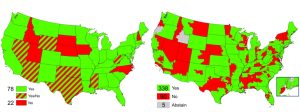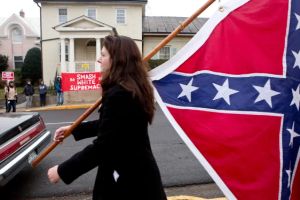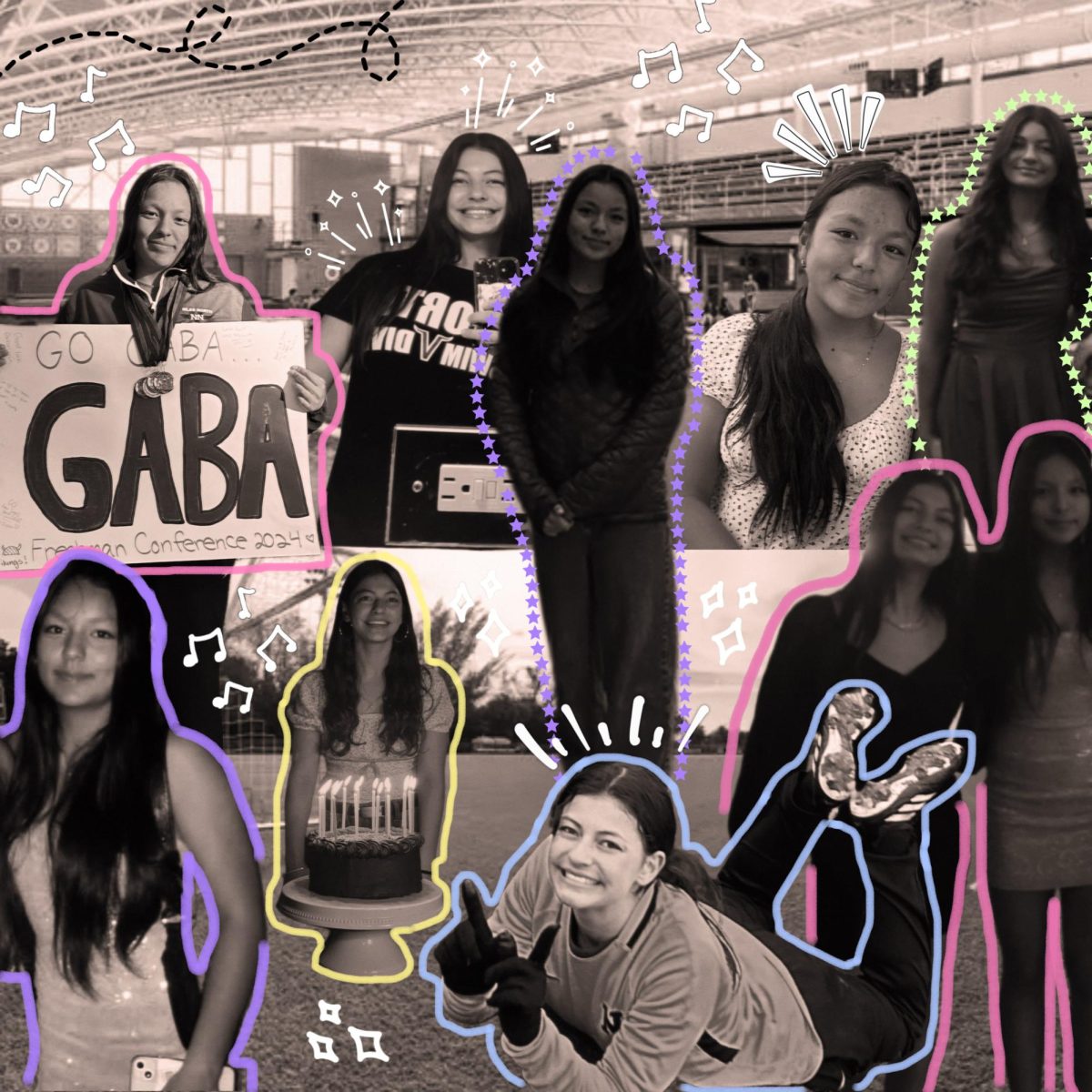Everyone knows the unforgettable story of the Black American oratorical hero that is Dr. Martin Luther King Jr. Born in a divided, segregated United States, he set about changing the country by emphasizing the need and importance of racial equality in the U.S. through his powerful speeches, most famously his “I Have a Dream” speech. Now, his name is forever immortalized every year on the third Monday in January, a national holiday that bears his name, falling around the date of his birthday, Jan. 15. However, this holiday wasn’t always national, completely recognized, or even named after him in some states, especially during the holiday’s early history. Nearly everyone knows the story behind the man, but almost no one knows the story of the holiday. Sometimes, this history has been left unmentioned and the holidat intentionally twisted to promote different, even opposing values that Dr. King didn’t fit.
The story starts in Illinois, the first state to sign the King Holiday Bill into law in 1983 under Gov. Dan Walker. This led other states to join in, making MLK Day a legally recognized holiday in several states. A movement to honor King via a national holiday had been going on since his assassination in 1968, and the debate as to whether this day should be recognized federally was divided among the states. Interestingly, those states who were against this decision or split on it were not primarily Southern but were mainly Western and/or West of the Mississippi River like Texas, Iowa, Nebraska, and Idaho. Despite opposition, the affirming majority won; Ronald Regan signed the MLK Day bill into law in 1983 and MLK Day officially became a federally recognized holiday in 1986. This decision helped to honor King and his work, becoming the first American holiday celebrating an African American, helping to remember his name for years to come, or so it seems.

The story could easily end there, but some states were still reluctant to recognize the holiday in its entirety. For example, Arizona, the last state to make MLK Day a state holiday in 1986, quickly rescinded this decision after a new governor was appointed, Gov. Evan Mecham in 1987, claiming the holiday was created illegally. This overturn was met with huge backlash, including statements that Mecham was a racist and a bigot, a boycott of the state from Stevie Wonder, and even a public cancellation of a trip to Arizona from Rev. Jesse Jackson. This decision would eventually be repealed, but even so, Arizona (and New Hampshire) would refer to the holiday as “Civil Rights Day” for years after.
“I don’t see why students should just learn about King himself if they don’t learn about how the day came to be,” senior Gabby Mattison said. “Especially if it was a huge struggle to get the day to be what it is today. Honestly, I’m not that surprised some Southern states were against MLK Day considering the Southern states were opposed to slavery. But it was unfair and wrong. Mixing confederates into the holiday was disrespectful for sure. You can tell with them doing that, they were going to suppress King and talk more about the confederates. It’s important to learn this because, every year when it comes around, we learn the same thing over and over, so this would be something new to learn.”
Wyoming also had its fair share of setbacks: the state’s Senate members were split on the decision, leaving Wyoming to not recognize the holiday until 1991. This ended thanks to the work of one of the state’s House members, Harriet Elizabeth Byrd, who reached a compromise with her colleagues; the holiday would be passed into state law but it would be referred to as “Wyoming Equality Day” instead. This worked, making Wyoming one of the last five states to recognize MLK Day, even if it wasn’t entirely by name.

But the most shocking and disrespectful decisions came from some of the Southern, ex-confederate states. For context, some Southern states recognize holidays that honor famous confederate generals and political figures, Most famous of these is General Robert E. Lee, whose birthday falls on Jan. 19, just four days after King’s birthday. Because of this proximity, some Southern states attempted to merge the two figures’ legacy into a, needless to say, ironic move. This created King-Lee Day, a holiday meant to honor both figures in states like Alabama and Mississippi, who continued celebrating this holiday in 2022.
“If I had some credible sources I would probably change some of what I would do in the U.S. History class curriculum to look at MLK Day in a different way,” Chan said. “I already do some stuff with post-Civil War monuments, so we talk a lot about confederate monuments and statues. I don’t think any new information about Dr. King, his history, MLK Day, or civil rights is bad information. I think it just gives us a deeper understanding and appreciation of what it is we’re learning about. I think information like this teaches us how to evaluate our understanding of history and that’s how it can become important for students and for adults in general, here in school or in life.”
Even more attempts would be made by Southern state representatives to mesh confederate figures into this ironic melting pot of recognition. Early into Alabama’s decision making, Democratic Representative Alvin Holmes tried putting Jefferson Davis, president of the confederacy, into the holiday as well but this quickly failed. However, Virginia did not fail in this regard; Already celebrating Lee-Jackson Day, honoring confederate generals Robert E. Lee and “Stonewall” Jackson, Virginia shoved King into the mix, creating Lee-Jackson-King Day in 1984, a holiday that would go on to be celebrated until 2000.
“I’m not surprised that some states were reluctant because it was Wyoming and those normally more conservative states so they would support merging MLK Day with confederates because that’s just where their values lie,” an anonymous senior said. “I think that shouldn’t happen because this is MLK Day and we’re not here to honor confederates. It’s very important to learn this history.”

Though, to many students and staff, MLK Day seems like a reasonable holiday to recognize and celebrate, that’s because much of Niles North was not around to see the fight against MLK Day in the ‘80s. Most everyone attending Illinois schools is taught the story and legacy of Dr. King by age 10, further cementing this liberal perspective. But that’s never where the story ends, and it’s not even always seemingly better as more time passes. There are countless examples in American history where some states and governments go back on their more liberal decisions, fight against federal progressivism, or overturn socially impactful legislation, most recently and notably being Roe V. Wade. The passage of Martin Luther King Jr. Day as a recognized holiday in all 50 states is just one of many examples. Even after all of King’s powerful speeches, though acceptance of racial equality undoubtedly increased in America, much work was left to be done in convincing the states to properly represent and acknowledge civil rights and their leaders.









